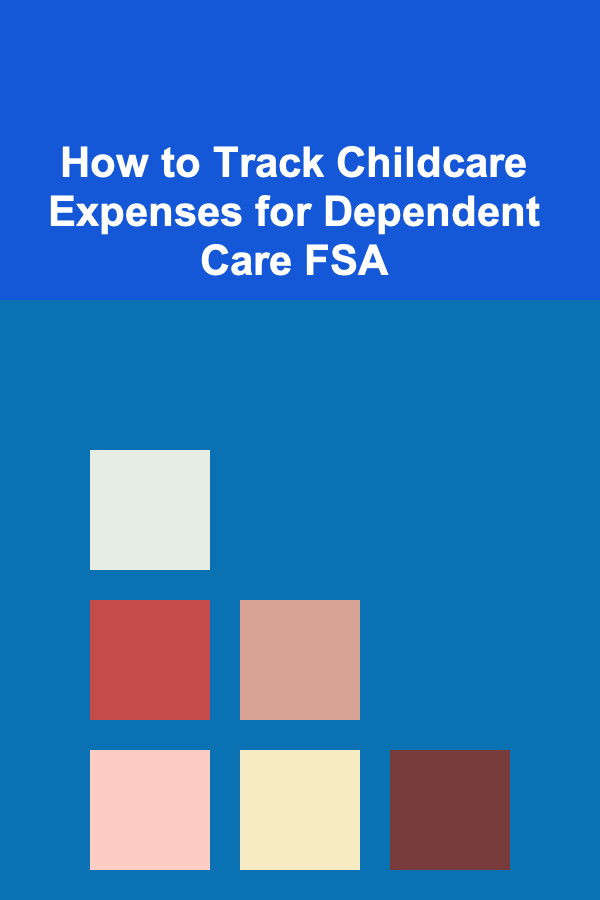
How To Develop Your Creativity Through Writing Prompts
ebook include PDF & Audio bundle (Micro Guide)
$12.99$11.99
Limited Time Offer! Order within the next:

Creativity is often seen as a mystical quality that some people are just born with, while others struggle to access it. However, creativity is not a fixed trait; it's a skill that can be developed and honed over time. One of the most effective ways to cultivate creativity is through regular practice, and a powerful tool to achieve this is the use of writing prompts.
Writing prompts are simple, thought-provoking ideas or questions designed to inspire you to write. They challenge you to think outside the box, explore new perspectives, and dive into the depths of your imagination. Whether you're an aspiring writer or someone looking to sharpen your creative muscles, using writing prompts can be an incredibly beneficial practice.
In this article, we'll explore how writing prompts can help you develop your creativity, the different types of prompts you can use, and how to incorporate them into your daily routine to unleash your creative potential.
The Role of Creativity in Writing
Before diving into how writing prompts can boost creativity, let's first explore why creativity is essential in writing. Writing, at its core, is an act of creation. Whether you're working on fiction, non-fiction, poetry, or any other form of writing, it requires a unique combination of ideas, emotions, and perspectives. Creativity fuels this process, allowing writers to connect with readers in meaningful and imaginative ways.
Creativity in writing is not just about coming up with new ideas; it's also about looking at old ideas in new ways. It involves seeing patterns where others don't, exploring new angles, and embracing the unexpected. Creativity allows writers to experiment with language, structure, and narrative, taking risks to create something fresh and unique.
But creativity can be elusive. It can be challenging to tap into that well of inspiration when you feel stuck or uninspired. This is where writing prompts come in. They serve as a catalyst, sparking new ideas and providing a structure for your creative process.
How Writing Prompts Foster Creativity
1. Breaking Through Creative Blocks
One of the most frustrating experiences for writers is dealing with writer's block. You sit down at your desk, stare at a blank page, and feel the pressure of coming up with something great. In these moments, creativity can feel out of reach.
Writing prompts act as a powerful tool to break through this mental block. By providing a starting point, they take the pressure off, allowing your mind to wander freely. Rather than worrying about where to begin, you can simply focus on responding to the prompt in any way that feels right.
For example, a prompt like "Write about a time when you felt truly free" invites you to tap into your personal experiences and emotions. This simple question helps your brain get moving without the overwhelming task of coming up with something entirely original.
2. Encouraging Experimentation
Creativity thrives in an environment that encourages experimentation. Writing prompts push you to step outside your comfort zone and explore new writing styles, genres, and formats.
If you're someone who typically writes short stories but want to try your hand at poetry, a writing prompt like "Write a poem about a storm" challenges you to experiment with language and structure. You might find that writing in a different format sparks new ideas and helps you view your writing from a fresh perspective.
Prompts also encourage writers to experiment with different themes and topics. If you're used to writing about familiar subjects, a prompt like "Describe an alien landscape" invites you to explore new territory and think beyond the usual constraints of your writing.
3. Expanding Your Imagination
Creativity is deeply tied to the ability to imagine. Writing prompts stretch the limits of your imagination by forcing you to think about things you might not normally consider. Whether you're asked to imagine an alternate reality, a historical event from a different point of view, or a future society, prompts push you to envision new worlds and possibilities.
For instance, a prompt like "Imagine a world where everyone can read minds" invites you to create a complex and unique society. What would life be like in such a world? How would people communicate? What challenges would arise? These kinds of prompts encourage you to think in abstract ways and expand your imaginative capacity.
4. Developing a Regular Writing Practice
Creativity isn't something that appears only when you're feeling inspired. It's a muscle that needs to be exercised regularly. Writing prompts provide a way to establish a daily or weekly writing routine, which helps train your brain to be consistently creative.
When you write regularly in response to prompts, you're conditioning yourself to think creatively on a daily basis. Over time, you'll develop a greater ability to generate ideas and work through challenges with ease. A consistent writing practice, fueled by prompts, helps create the mental habits necessary for long-term creativity.
Types of Writing Prompts
Writing prompts come in many forms, each designed to inspire creativity in different ways. Let's explore some of the most common types of writing prompts you can use to develop your creativity.
1. Descriptive Prompts
Descriptive writing prompts encourage you to paint vivid pictures with words. These prompts challenge you to use sensory details and imagery to describe a scene, object, or person.
Examples of descriptive writing prompts:
- "Describe a rainy day in a bustling city."
- "Write about an object in your room as if it were alive."
- "Describe the taste of your favorite food in great detail."
Descriptive prompts help you exercise your ability to observe the world around you and translate those observations into words. They are particularly useful for honing your descriptive language and developing your sensory awareness.
2. Character Prompts
Character prompts are designed to help you create and develop compelling characters. These prompts encourage you to think deeply about a character's personality, background, motivations, and relationships.
Examples of character writing prompts:
- "Write about a character who is afraid of the dark but is forced to confront their fear."
- "Describe a day in the life of a character who has just moved to a new city."
- "Write a letter from your character to someone they've never met."
Character prompts help you build empathy and understanding for the characters you create. They force you to think about your character's inner world and how they interact with the environment around them.
3. Plot-Based Prompts
Plot-based prompts provide the framework for a story, often focusing on conflict, resolution, or a pivotal moment. These prompts can serve as a starting point for short stories, novels, or even screenplays.
Examples of plot-based writing prompts:
- "A stranger arrives in a small town, bringing with them a mysterious package."
- "Write about a character who discovers an old letter that changes their life."
- "Your protagonist is given a once-in-a-lifetime opportunity but must make a difficult decision."
Plot-based prompts push you to think about story structure, pacing, and tension. They provide the foundation for building narratives that engage readers and create emotional impact.
4. Fantasy and Science Fiction Prompts
For those who enjoy world-building and exploring imaginative scenarios, fantasy and science fiction prompts offer endless possibilities. These prompts challenge you to create unique worlds, beings, and concepts that are far removed from reality.
Examples of fantasy and science fiction writing prompts:
- "Write about a society where everyone has a superpower, but they can only use it once in their lifetime."
- "Describe an encounter between a human and an alien species."
- "Write a scene set in a dystopian future where technology has taken over society."
These prompts stretch your imagination and require you to think about new possibilities, technologies, and social structures. They are perfect for writers who enjoy creating fantastical worlds and pushing the boundaries of reality.
5. Personal Experience Prompts
Personal experience prompts encourage you to draw on your own life and emotions to create meaningful writing. These prompts can be reflective and therapeutic, allowing you to explore your feelings and experiences.
Examples of personal experience writing prompts:
- "Write about a time when you felt out of your comfort zone."
- "Describe a memory from your childhood that shaped who you are today."
- "Write a letter to your past self."
Personal experience prompts help you connect with your own life story and turn it into meaningful writing. These prompts can be particularly helpful for memoirists, journal writers, or anyone interested in exploring their personal journey.
Incorporating Writing Prompts Into Your Routine
Now that you understand the power of writing prompts, let's discuss how to incorporate them into your daily life to cultivate creativity.
1. Set Aside Dedicated Writing Time
To make the most of writing prompts, it's important to set aside dedicated time each day or week for writing. Even if you're only writing for 10-15 minutes a day, consistency is key. By making writing a regular habit, you create space for your creative mind to flourish.
2. Use Prompts for Warm-Up Exercises
Writing prompts don't always have to be used for full-length projects. You can use them as warm-up exercises to get your creativity flowing before diving into a larger writing task. Try responding to a few prompts before you start your main writing session to loosen up your mind and break through any creative blocks.
3. Experiment With Different Types of Prompts
As we've seen, there are many different types of writing prompts. To develop your creativity, experiment with a variety of prompts from different genres and categories. You may find that certain types of prompts resonate with you more than others, or that you enjoy pushing yourself into new creative territory.
4. Keep a Writing Journal
A writing journal is an excellent way to track your progress and revisit old prompts. You can write down the prompts that you've worked with, note how they made you feel, and reflect on the creative ideas that emerged. Over time, you'll be able to see how your creativity has evolved and grown.
Conclusion
Writing prompts are a powerful tool for developing your creativity. By breaking through creative blocks, encouraging experimentation, expanding your imagination, and establishing a regular writing practice, prompts help you tap into your creative potential. Whether you're a seasoned writer or just beginning your creative journey, writing prompts can serve as an invaluable resource for unlocking new ideas and perspectives. Incorporate them into your daily routine, and watch your creativity soar.
Reading More From Our Other Websites
- [Reading Habit Tip 101] The 10-Minute Daily Routine That Guarantees You'll Finish Every Book
- [Home Security 101] How to Use Smart Sensors to Detect Unusual Movements in Your Home
- [Organization Tip 101] How to Set Up a System for Tracking Household Chores
- [Home Family Activity 101] How to Turn Chores into Family Games and Encourage Teamwork
- [Mindful Eating Tip 101] Best Mindful Eating for Busy Professionals -- Quick Tips & Techniques
- [Organization Tip 101] How to Use Minimalism to Simplify Your Study Room
- [Home Lighting 101] How to Select the Best Bathroom Lighting Fixtures for Every Room
- [Biking 101] The Ultimate Guide to Cycling Routes: How to Plan the Perfect Ride
- [Home Space Saving 101] How to Use Stackable Furniture for Better Space Management
- [Organization Tip 101] How to Utilize Breaks for Better Focus and Productivity

How to Make Your Renovated Home More Kid-Friendly
Read More
How to Style Your Bathroom for the Holidays
Read More
How to Discover Groundbreaking TV Shows of All Time
Read More
Understanding the Neo-Assyrian Empire: Power, Innovation, and Lasting Impact
Read More
How to Plan a Budget-Friendly Beach Vacation
Read More
How to Track Childcare Expenses for Dependent Care FSA
Read MoreOther Products

How to Make Your Renovated Home More Kid-Friendly
Read More
How to Style Your Bathroom for the Holidays
Read More
How to Discover Groundbreaking TV Shows of All Time
Read More
Understanding the Neo-Assyrian Empire: Power, Innovation, and Lasting Impact
Read More
How to Plan a Budget-Friendly Beach Vacation
Read More